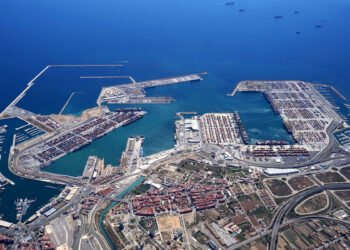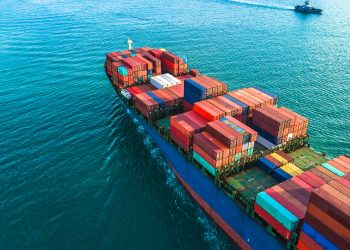Shipping and shipbuilding are essential to Seattle’s economic health

The Port of Seattle Commission convened leaders of the city’s diverse maritime community to identify and advance public policies that will create more good jobs in Seattle.
The summit, led by port Co-President Stephanie Bowman and Commissioner Tom Albro, drew senior executives from international shipping, the Northwest Pacific fishing fleet, organized labor and other stakeholders driving the industry’s livelihood in the region.
“As a community, we must unite around a shared vision for maritime commerce that takes advantage of our strengths and the opportunities before us,” said Bowman. “Maritime is at the heart of our city’s economic and cultural legacy, but more importantly, reflects a core element of our future. It is a key source of middle-class, family-supporting jobs, and brings essential economic vitality and diversity to our community.“
The maritime industry bolstered Seattle’s economy through the turbulent years of the global economic downturn and is poised for future growth. The Economic Development Council of Seattle and King County released a maritime economic impact study last year that cataloged the industry’s 148,000 jobs and $30 billion impact in the community. The average annual salary for a Seattle maritime worker is $70,800.
“Our region’s maritime sector is multi-faceted, but we share common priorities,” said Adm. John Lockwood (USCG Ret.), President of the Seattle Marine Business Coalition and a Senior Advisor at Vigor Industrial. “All our businesses need to hire skilled workers, depend on common-sense regulatory and tax policies, and rely on investments that support freight mobility. Companies across the maritime sector are innovating and competing, but we need backing from policymakers here at home.” Vigor Industrial is the region’s leading provider of shipbuilding, ship repair and other industrial services in the Pacific Northwest and Alaska. Nearly half of Vigor’s 2,000 employees work at the company’s facilities in Seattle and around Puget Sound.
Maritime leaders shared information and insights about the opportunities and challenges that lie ahead, with an eye to driving public policies that support the industry’s success. Participants expressed support for land-use decisions and environmental regulations, including a Shoreline Master Program compatible with existing industrial activities and seaport operations. The group urged the city to complete the Seattle Industrial Areas Freight Access Project and Freight Master Plan to improve freight mobility on city streets.
The group also advocated support for policies that will attract more international container cargo to Seattle, including greater certainty around costs associated with stormwater regulations, improved strategic regional planning on port and transportation investments, and an overhaul of the federal Harbor Maintenance Tax that encourages the diversion of U.S.-bound cargo to foreign ports.
“Maritime business development, environmental stewardship and livable communities are goals we all share and can achieve together,” said Seattle City Councilmember Sally Clark. “Seattle is a port city in a heavily trade-dependent state. Seattle can and should win in the competitive maritime world through smart investments in waterways, terminals, roads, rail and skilling up the workforce.“
“Seattle was founded as a maritime city and we’re fully committed to the future of the industry here in the decades ahead,” said Andrea Riniker, Deputy Mayor of Seattle and former Port of Tacoma executive. “Shipping, shipbuilding and fishing are essential to our community’s economic health and sustainability. We are working to advance the land-use policies and public investments that will support thousands of jobs and allow these industries to thrive.“
“Governor Inslee’s top priorities include a focus on supporting key sectors of our state’s economy,” said Steve Sewell, appointed Director of Economic Development for Maritime at the Washington State Department of Commerce late last fall. “The maritime sector is healthy, but faces competitive threats, both domestically and globally. Our job is to identify strategic growth and investment opportunities, working closely with public and private partners to ensure alignment with existing economic development programs in a shared direction and roadmap.“
Source: Port of Seattle




























































